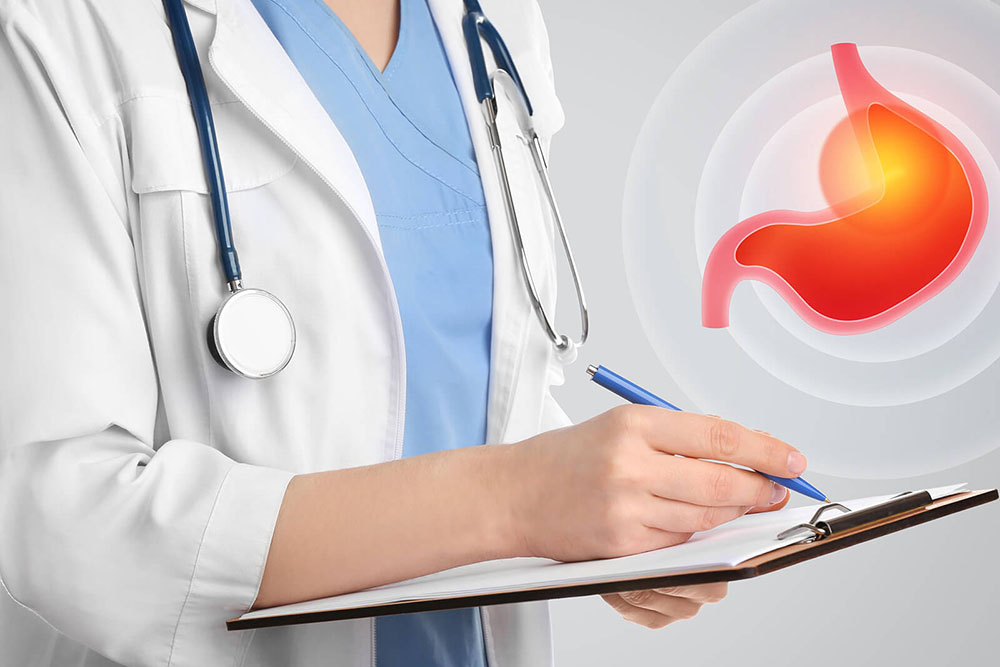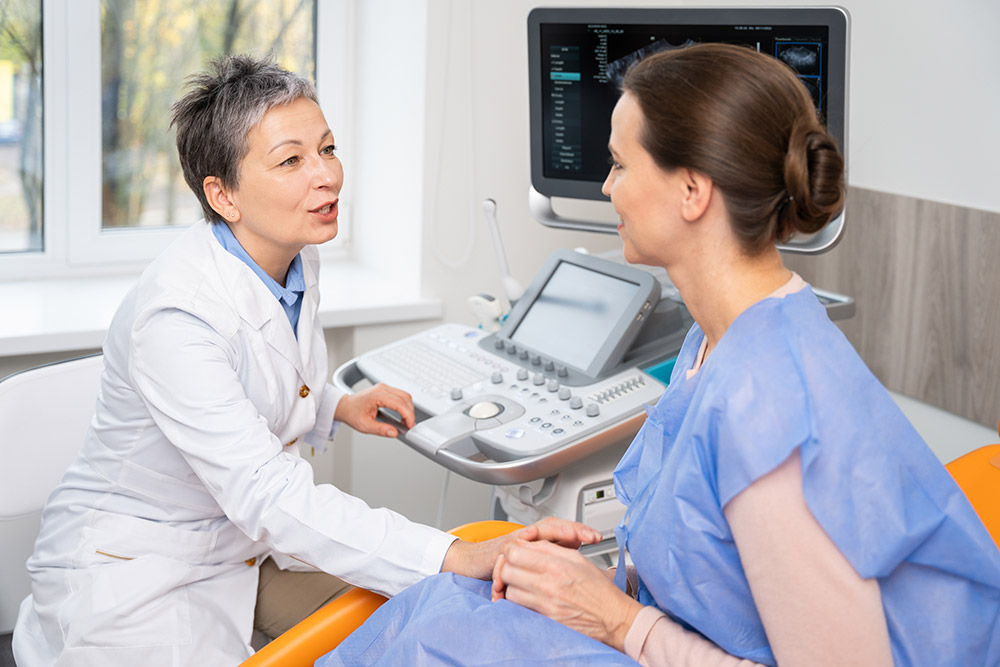What Is Bowel Obstruction?
Bowel obstruction occurs when food, fluids, or gas cannot move through the small or large intestines (ICD-10: K56.6). This blockage leads to abdominal pain, swelling, nausea, and vomiting. If not treated promptly, it can result in tissue death or serious infection.
Common Causes and Risk Factors
- Adhesions (scar tissue) from past abdominal surgery
- Hernias in the abdominal wall
- Tumors or growths within the intestines
- Volvulus (twisting of the bowel)
- Inflammatory bowel disease or diverticulitis
- Radiation therapy to the abdomen
- Gynecologic surgery or endometriosis (in women)
Signs and Symptoms
- Crampy or sharp abdominal pain
- Nausea and vomiting
- Inability to pass gas or have a bowel movement
- Abdominal bloating or distension
- Rapid heartbeat or dehydration in severe cases
How Dr. Rishi Diagnoses Bowel Obstruction?
Dr. Chadha uses a step-by-step approach:
Medical History and Physical Exam
He reviews your medical history, prior abdominal surgeries, risk factors, and symptom timeline, then performs a gentle abdominal examination.
Imaging Studies
- Abdominal X-rays to detect air-fluid levels and pinpoint blockage sites.
- CT scans to visualize the exact location, cause, and severity of the obstruction.
Blood Tests
We check for signs of infection, electrolyte imbalances, dehydration, and overall metabolic status.
Contrast Studies
A small bowel follow-through or enteroclysis tracks contrast movement to map out the obstruction and aid treatment planning.
Advanced Testing (if needed)
Occasionally, endoscopic evaluation or additional specialized imaging may be ordered to clarify complex cases.
Frequently Asked Questions
What is a bowel obstruction?
A bowel obstruction is a blockage in the small or large intestine that prevents food or gas from moving through. Dr. Rishi Chadha diagnoses and manages this emergency condition in Houston.
What causes bowel obstruction?
Common causes include scar tissue from surgeries, hernias, tumors, inflammation from Crohn's disease, or impacted stool. Dr. Chadha identifies the cause with imaging and labs.
What are the symptoms?
Symptoms include severe belly pain, vomiting, bloating, inability to pass stool or gas, and swelling. If you experience these, seek immediate care with Dr. Chadha.
Is bowel obstruction a medical emergency?
Yes. Untreated obstructions can lead to bowel death or rupture. Dr. Chadha provides rapid diagnosis and coordinates surgical or non-surgical treatments.
How is it diagnosed?
Dr. Chadha uses abdominal X-rays, CT scans, and blood work to evaluate the location and cause of the obstruction.
What treatments are available?
Treatment may include IV fluids, bowel rest, nasogastric tube placement, and sometimes surgery. Dr. Chadha works closely with surgical teams if needed.
Can bowel obstruction be managed without surgery?
In some cases, yes - especially if the blockage is partial. Dr. Chadha uses a conservative approach first when safe and appropriate.
What should I eat after recovery?
Dr. Chadha may recommend a low-fiber or liquid diet during healing. Follow-up visits help ensure your bowel function returns safely.
Can it happen again?
Yes. People with past obstructions, hernias, or certain conditions may be at risk. Dr. Chadha provides guidance to reduce recurrence.
How do I follow up with Dr. Chadha?
Call or visit GastroDoxs in Houston to schedule a follow-up. Dr. Chadha provides long-term care for bowel issues and ongoing digestive health.











